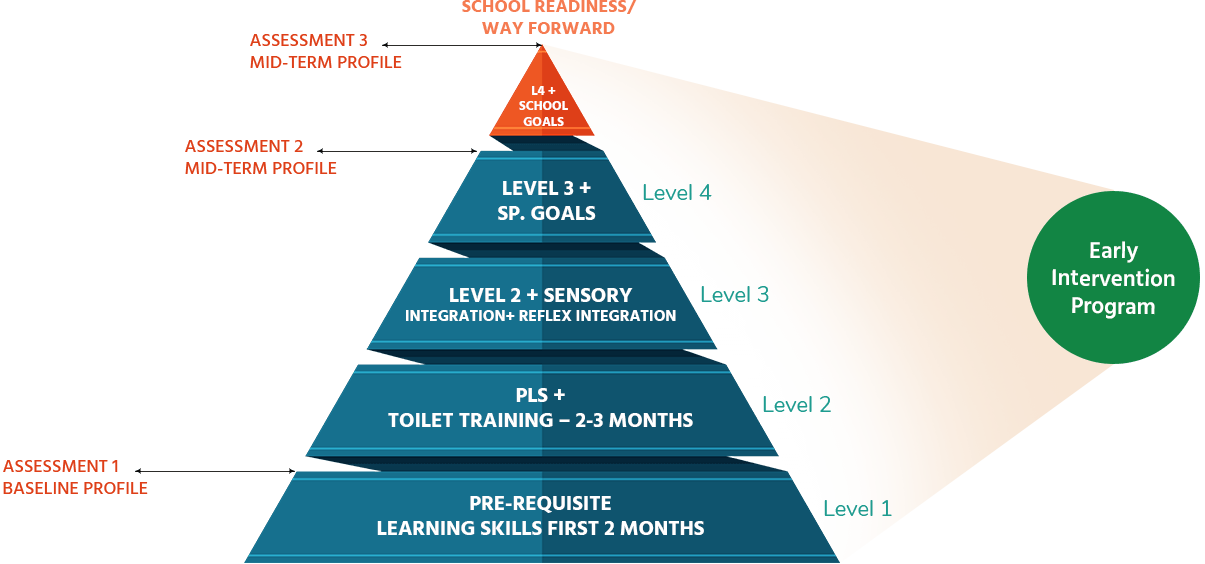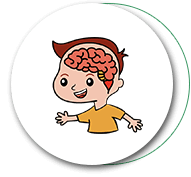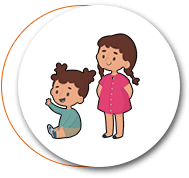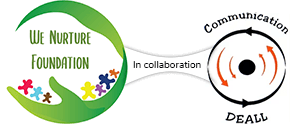Early Intervention
Research has shown that brain development in children takes place rapidly from birth to 3 years of age. As a consequence, they are receptive, adapt and learn better. Intensive intervention during formative years can mitigate developmental delays to a large extent.

Program Overview
Children from ages 0-6 years benefit the most from this individualized, family-centric, and integrated therapy program spread over an academic year.
The program focuses on eight domains that include motor, self-help, social, emotional, cognitive and communication skills. It has been modelled on the original Com DEALL (Developmental Eclectic Approach to Language Learning) program to support children with developmental disorders like autism spectrum disorders, attention-deficit/hyperactivity, specific learning difficulties, sensory-perceptual issues, motor executive issues, and communication, social, emotional deficits as a consequence.
Read MoreThe domain-specific goals for each child are broken down to smaller achievable goals on the pyramid.
While the focus is on preparing the child for school, the detailed assessment report of the child that identifies the problem areas, in reality, forms the base to set a target goal and the domain-specific goals.
Read Less ↑
Program Includes
*We support children from 0 to 6 years under this program with 1:4 staff to student ratio.
For More information Download the Program Brochure
DownloadHow Can Early Intervention Help Your Child?

'Early' is the keyword when it comes to intervention. Early intervention can begin as early as 12 months up to 6 years. These are formative years when the rapid pace of brain development aids a better grasp of skills.

The strongest argument in favour of early intervention is the brain plasticity or the ability of the brain to adapt and learn critical skills. This ability is higher during early childhood. Hence, intervention therapies show maximum results.

The developmental gaps widen as the child advances in age. It is easier to bridge gaps when they are younger and more receptive to learning.

Families of children who receive early intervention benefit immensely as they get the necessary support and guidance to understand their child's strengths.

Studies show that children who receive early intervention have a greater chance of being integrated into mainstream schools.








